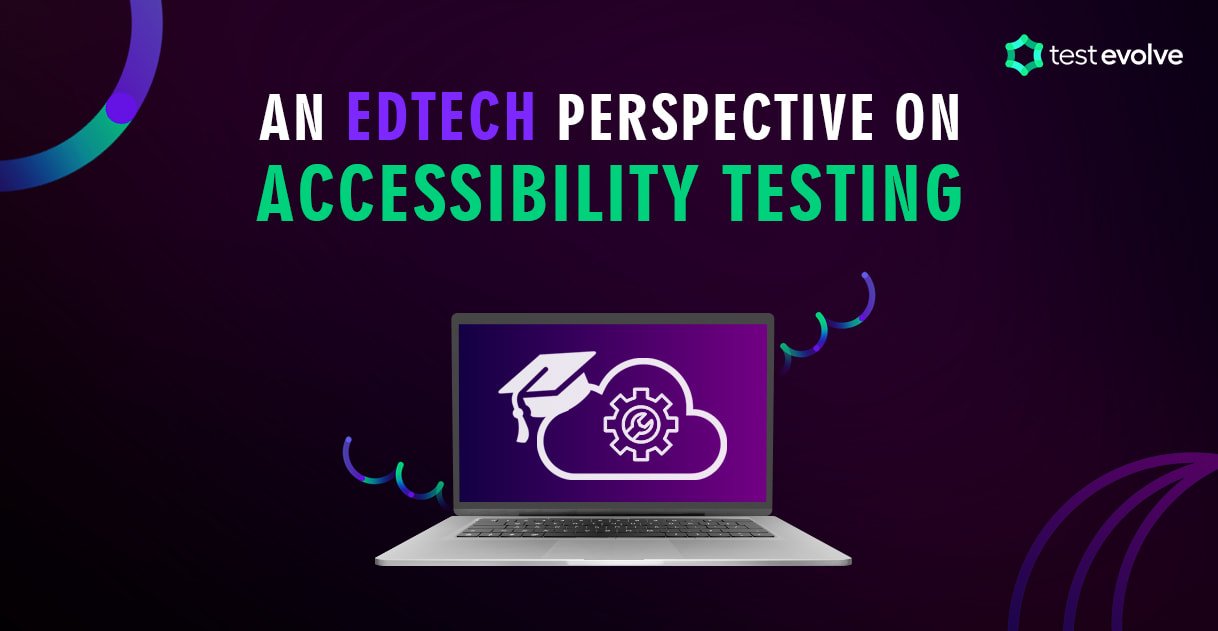An Edtech Perspective on Accessibility Testing
What is Accessibility & Why is it Important?
Accessibility is a key factor in the design and development of any product or service. It is the ease at which people can use a product, regardless of their abilities or disabilities.
Ensuring accessibility is essential in order to provide equal access to content and services for all users. It is especially important in an online environment, where people may encounter physical or digital barriers preventing them from accessing the necessary resources.
By making accessibility a priority, we can ensure everyone has the same opportunities to use and benefit from products and services.
Accessibility is no longer an optional feature when it comes to edtech products; it is a requirement that must be met both ethically and legally.
Ensuring that all users, regardless of physical or mental ability, can access and use edtech products is essential to providing an inclusive and equitable learning experience. As such, edtech companies must prioritise accessibility in their product design and development processes.
Edtech and Students of the Future
Edtech is slowly becoming a vital tool in the world of education, encompassing a wide range of products and services such as:
- Distance learning
- Hybrid learning (online and classic style learning with a tutor)
- E-learning platforms
- AR(Augmented reality) and VR (virtual reality)
The edtech sector is one of the fastest-growing industries in the UK, and its growth is only set to continue.
Recent studies have predicted that the global edtech sector will become a highly valued industry, with many organisations working to accelerate its adoption in schools and close the education gap.
The pandemic has significantly contributed to this growth process, as the need for sophisticated home and online learning technologies has increased. And even after the state of emergency has been lifted, the sector has continued to develop, and its future is looking brighter and brighter.
Accessibility Testing for Edtech Products
To ensure that edtech software is accessible to all users, it is important to use various accessibility testing tools and techniques.
These can include automated testing tools that will programmatically audit your web or mobile app, screen readers, colour contrast analysers and manual testing with keyboard navigation and voice recognition commands.
Usability testing should be conducted as well, to ensure that the user interface is intuitive and easy to use.
Finally, user surveys and interviews can provide valuable feedback on how the product is being used and how it can be improved.
By utilising these various testing techniques, companies can ensure that their edtech products are accessible to all users.
Empowering Edtech through Accessibility: The Importance of Testing
Broadens your customer base
Making your product accessible to people with disabilities not only improves the quality of your product but also provides the opportunity to increase your customer base.
By following the Web Content Accessibility Guidelines, you can make sure that your product is available to a larger cross-section of the population, making your product an inclusive one and attracting more customers.
With over a billion people with disabilities globally, this is an excellent opportunity to expand your customer base and reach more people with your edtech product or service.
Attracts investors and generates positive publicity
Accessibility in EdTech means more than just providing inclusive products and software; it is an integrated practice that not only aids students with disabilities but upgrades the overall learning experience for all students.
Governments worldwide are investing in assistive technology and projects to accelerate accessible innovations, and to ensure that these initiatives are successful, it is essential to have a thorough understanding of accessibility guidelines and standards such as the Web Content Accessibility Guideline (WCAG) and Section 508.
With a commitment to accessibility, we can create a more equitable learning environment for all and positively impact the lives of those with disabilities.
Reduces liability for lawsuits
Ensuring your start-up is compliant with accessibility standards is essential to protect it against potential lawsuits.
The Individuals with Disabilities Education Act (IDEA) and Section 504 emphasise the need for an accessible EdTech environment, and any non-compliance can lead to a lawsuit.
By taking the necessary steps to make sure your products and software services are accessible to all, you do your utmost to ensure ethical and legal compliance.
Conclusion
Accessibility testing for edtech products is essential for creating an equitable learning environment for all students. Companies must prioritise this process and ensure that their products are accessible to all users, regardless of ability.
This is not only a legal requirement but also a moral obligation to provide equal access to educational software.
Looking ahead, companies in Edtech should invest in accessibility testing and strive to ensure their products meet the highest standards of accessibility compliance.
By doing so, everyone can share the advantages of edtech products and have a successful and inclusive learning experience.


